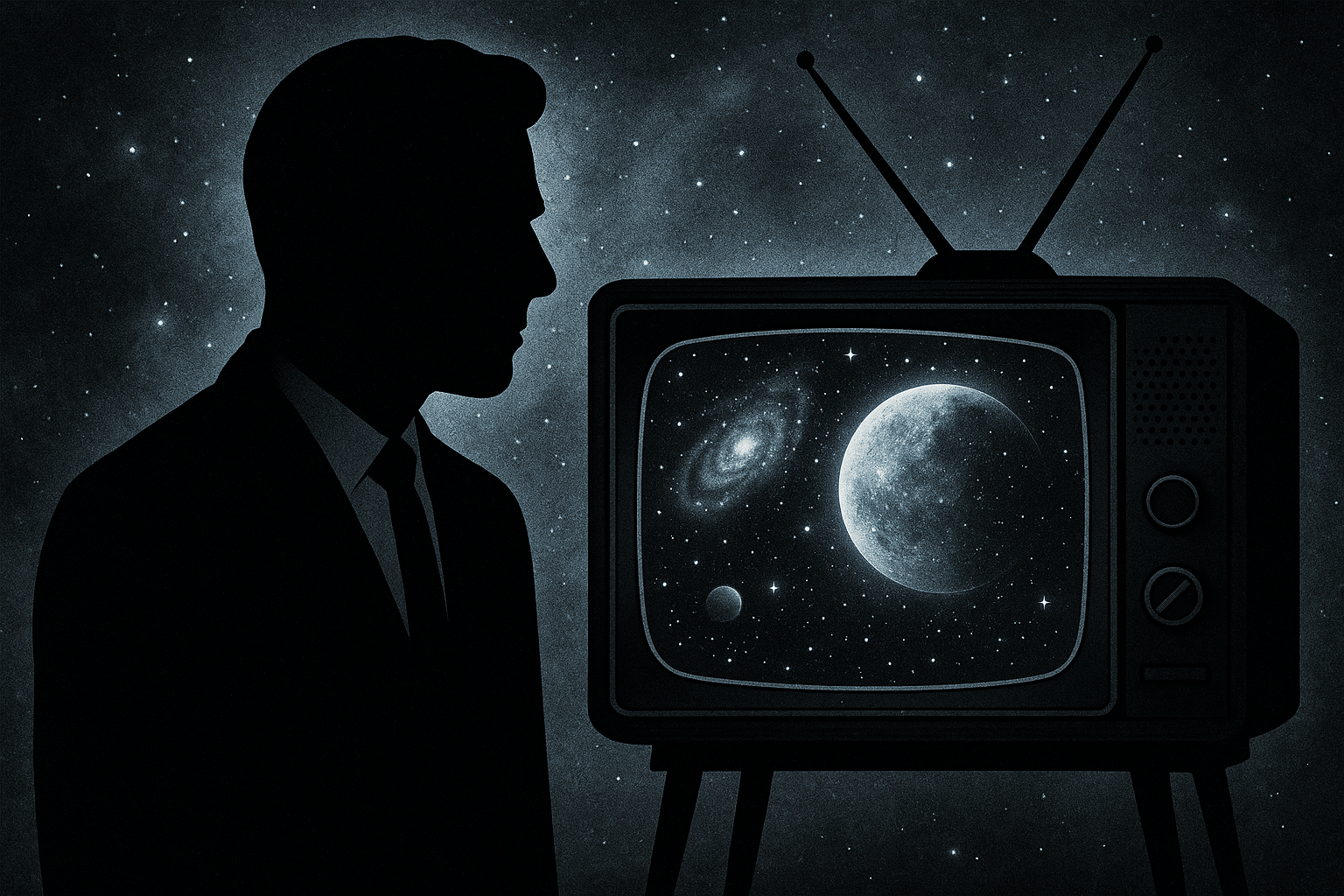“Fantasy is the impossible made probable.
Science fiction is the improbable made possible.”
When people talk about The Twilight Zone, they usually talk about the eerie music, the twist endings, the outer-space moral fables. What often gets left out is just how much Rod Serling was fighting for humanity the entire time.
Serling wasn’t just a storyteller; he was an advocate. He fought against censorship, spoke out against racism, opposed the Vietnam War when it wasn’t popular to do so, and used the relatively new medium of television to gently (and sometimes not-so-gently) steer the American consciousness toward empathy, justice, and introspection.
It’s no accident that they call it television programming.
The purpose of TV isn’t just to entertain — it’s to program the viewer’s mind. To shape public opinion, create new desires, new fears, new norms. Television has always been one of the most powerful tools of influence humanity has created thus far. Entire elections, wars, economic shifts, and social movements have been sparked, shaped, and steered through what people saw on their screens.
Rod Serling knew this. But unlike others who saw TV as a tool to control and profit from human weakness, Serling saw it as an opportunity to heal — to help a wounded country see itself more clearly.
When networks rejected scripts that confronted racism overtly, Serling didn’t stop. He disguised civil rights parables inside alien invasions and ghost stories. When war propaganda dominated the airwaves, he wrote cautionary tales about humanity’s self-destruction and the folly of blind patriotism. He wasn’t afraid to push. He wasn't afraid to lose jobs over it.
Meanwhile, other men took note of the same power — but used it differently.
Roger Ailes, the architect behind Fox News, built an empire on the exact same understanding of television’s potential. Where Serling programmed empathy, Ailes programmed fear. Where Serling sowed justice, Ailes sowed division for profit. Ailes weaponized television not to uplift the public but to exploit its anxieties, creating a 24-hour loop of manufactured outrage.
It’s two sides of the same coin. The question has always been: what are we programming people to believe?
This is why Differ Entertainment is necessary. We understand that media doesn’t just reflect culture — it creates it. We aren’t here to passively entertain. We’re here to help build better humans. Through storytelling that inspires healing and connection.
Rod Serling once said,
"The ultimate obscenity is not caring, not doing something about what you feel, not feeling! Just drawing back and drawing in; becoming narcissistic."
We refuse to draw back. We choose to lean in, build forward, and use the full power of our screens.

